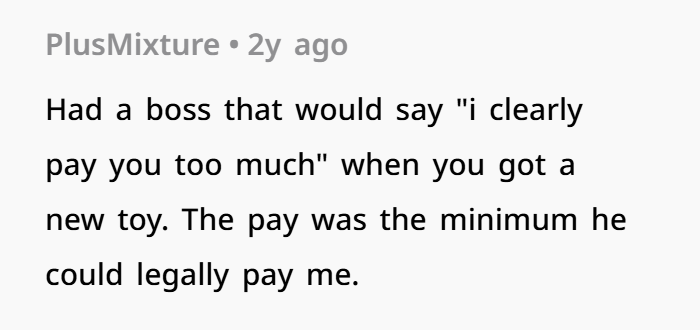Manager Cuts Employee’s Hours After She Buys Something New—Then Refuses to Discuss It
n this frustrating and deeply unfair workplace scenario, the original poster (OP) shares how a seemingly personal financial decision—purchasing a motorcycle—led to retaliation in the form of reduced work hours. OP works in fast food and was surprised when their manager asked about a stationary motorcycle parked out front. When OP proudly acknowledged it as theirs, the interaction appeared harmless. But the fallout came fast: on the next schedule, OP’s hours were significantly slashed. When confronted, the manager justified this by implying that OP’s purchase indicated financial stability, and thus, less need for hours—an assumption that’s not only incorrect but invasive.
The underlying issue here isn’t about transportation—it’s about perceived entitlement and the misuse of managerial discretion. OP’s decision to buy a motorcycle, a financially sound choice given limited access to a shared car, was used against them. What should have been a neutral or even commendable act of financial planning turned into a pretext for punishment. This not only demonstrates a lack of empathy from the manager but also raises serious concerns about workplace fairness and discrimination.
Sometimes, managerial decisions can make your professional life unnecessarily stressful or challenging

A person shared an incident where their manager unfairly judged them for buying a new motorcycle and reduced their work hours





The Legal and Ethical Implications of Retaliatory Hour Reductions in the Workplace
Understanding At-Will Employment and Its Boundaries
In many jurisdictions, including the United States, the concept of “at-will employment” prevails. This means that, in the absence of a specific contract, employers can generally modify employment terms, including reducing hours or terminating employment, without prior notice. However, this flexibility is not absolute. Employers cannot make such changes for illegal reasons, such as discrimination or retaliation.

In the scenario described, the manager’s decision to cut hours based on an employee’s personal purchase—a motorcycle—raises significant concerns. The manager’s statement that the employee “obviously doesn’t need the hours based off of the purchases [they] make” suggests a punitive action unrelated to job performance or business needs.
Retaliation and Discrimination: Legal Considerations
Retaliation occurs when an employer takes adverse action against an employee for engaging in legally protected activities, such as reporting misconduct or asserting their rights. While purchasing a motorcycle is not a protected activity, penalizing an employee for their personal financial decisions can still be problematic, especially if it leads to unequal treatment among employees.
Discrimination laws protect employees from adverse actions based on race, gender, age, religion, and other protected characteristics. If the manager’s decision disproportionately affects employees of a particular group, it could constitute discriminatory practice.
Financial Implications and Employee Rights
Reducing an employee’s hours can have significant financial implications, especially if the employee relies on a consistent income to meet obligations, such as loan repayments for a vehicle. Employers must be cautious to ensure that such decisions do not violate wage and hour laws, including minimum wage requirements.
Furthermore, if the reduction in hours is substantial, employees may be eligible for partial unemployment benefits, depending on state laws. It’s essential for employees to document changes in their work schedule and consult with employment law professionals to understand their rights and options.

Best Practices for Employers
Employers should base scheduling decisions on legitimate business needs and performance metrics, not on employees’ personal financial choices. Transparent communication and consistent application of policies help maintain trust and morale in the workplace.
Many people online criticized the author’s approach to evaluating performance based on personal purchases







While employers have discretion in managing schedules, using that discretion to penalize employees for personal financial decisions is ethically questionable and potentially legally indefensible. Employees facing such situations should document all relevant communications and seek legal advice to protect their rights.

